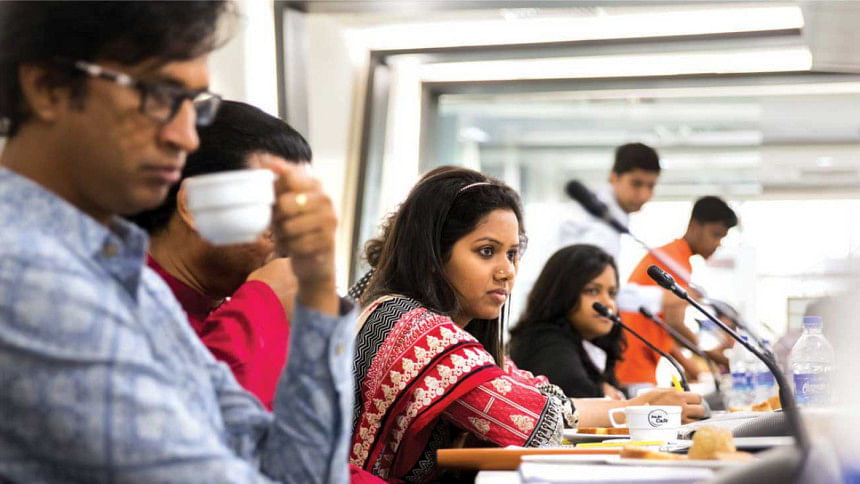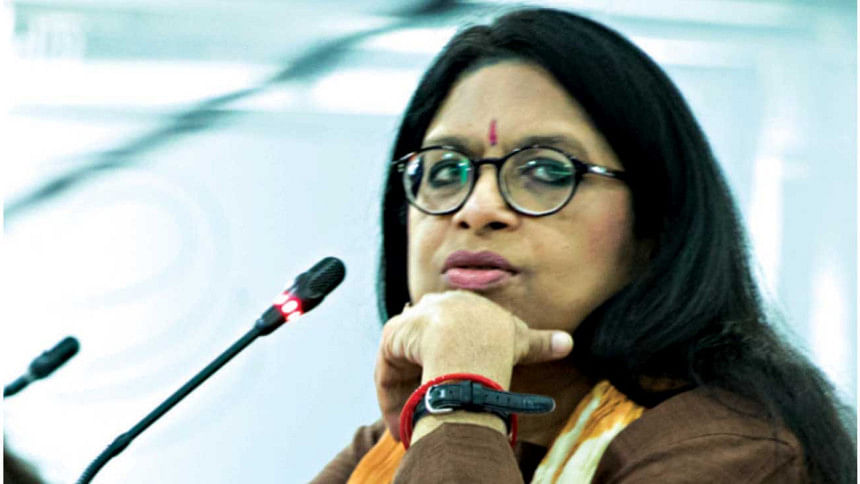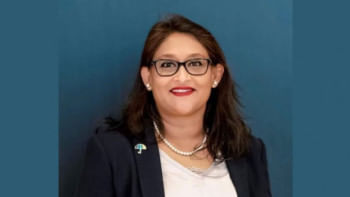CHOOSE BEAUTIFUL

To answer the latter question, Dove conducted a survey where they found that of all the women queried only 4 percent considered themselves beautiful. In fact, 9 out of 10 women identified aspects they would change about themselves to be beautiful. To further explore this issue, Dove has carried out three different social campaigns - the Dove Sketches, Dove Patches and Choose Beautiful campaign. These campaigns have revealed a lot more information which really reveals a lot about beauty, perceptions of beauty and even self worth.
For instance, the video of Dove Choose Beautiful campaign shows that there are two entry points installed in front of malls. The second video saw Dove install two doors to a major entry point. One door was marked "Average" and the other door was labelled "Beautiful". Women who thought they were beautiful were to use the second door and those who considered themselves average were to use the first door.

The entire time it was seen that women consciously avoided the second door. They may have walked the entire time in the path of the second door but the minute they saw they label, they went out of their way to use the second door.
This was of course perception. Most of the women would fit any propagated definition of beauty, yet they carefully avoided the second door nonetheless. However, some of the participants actually chose the "Beautiful" door.
A mother was seen dragging her daughter through the "Beautiful" door and that was a statement all by itself. Again, by all mainstream definition of beautiful, these women fit the bill to at yet end of the day, some of them themselves did not feel beautiful. And those that did, showed more confidence in themselves then how they looked. That was the message that Dove had been trying to derive from the very beginning.

96 percent of the women across the globe avoid using the word beautiful when it came to describing themselves. There was also a prevalent idea that even feeling beautiful was not a choice but rather something reserved for a chosen few or it was seen as something that could only be achieved with the right amount of effort. Dove's idea is to change these concepts and invite women to describe themselves as beautiful, confidently on a daily basis and inspire others to do so.
The campaign has been geared to instill the truth that choosing to be beautiful is a personal choice that one gets to make every day. Our tendency to not choose beautiful is what this campaign challenges. Furthermore, it aims to make the use of the word "Beautiful" as self-description. The campaigns aim then is to create a genuine social movement, build awareness and engage everyone in this very important conversation.
In view of this, Dove in association with The Daily Star arranged a roundtable titled "Choose Beautiful". The aim of the roundtable was to bring in people from spheres of life and discuss their notions on beauty and how beauty is more of a personal choice than one to leave onto others. The roundtable was kicked off by Mr. Zaved Akhtar, Brand Building Director, Unilever Bangladesh Limited, who went on to show the videos discussed and then talked about some of his own personal experience.

Afterwards, the question and answers segment of the roundtable began. Popular artiste and Editor of Star Weekend, Elita Karim conducted the roundtable. Dr Shaheen Islam, a Professor of the Department of Education and Counselling Psychology, started the roundtable by explaining why women did not really need to struggle to be beautiful.
"We are the mothers who make the leaders of society. The new generation of mothers then has the responsibility of imparting enough wisdom on their children so they can go on to make a difference." Sara Zaker; actress, entrepreneur and social activist spoke next on the how much detrimental it was for women to associate success with perfection in all aspects of her life.
"Society tends to think that if you are intelligent then you cannot be beautiful. I personally saw how when one of my siblings did not meet my dad's friends' beauty definitions they consoled her by saying she could always be a doctor," she told the people present.
"The perfect figures that the media bombards us with actually become a burden. The media should instead send the message that beauty is being confident," she concluded, explaining the role that the media could instead choose to play.

Kaniz Almas, Managing Director, Persona presented another important thought to the discussion about how even beauty was a mind state and our perceptions defined what we thought of ourselves.
"We beautify what we can see, such as changing the hair colour. Once done, I see that the client's confidence automatically rises as she thinks that this change has made her beautiful," she said. She expressed the need to form our opinions of what beauty really is.
Speaking from her own experiences, Mrs. Kaniz Almas remained adamant that if we first know ourselves and our definition of beauty, we can feel confident about ourselves. "We can create our own definition of beauty. When a bride is all dressed up, she is constantly told how beautiful she looks and that increases her confidence and when she feels beautiful, she actually looks beautiful," she said.
Geeteara Safiya Choudhury, Chairman, Adcomm Ltd then spoke about the roles that we have to play ourselves to bring about the needed change. "There is a saying that the hand that rocks the cradle is the the hand that rules the world. If mothers give their daughters the right message, then they can gain confidence. But the media needs to highlight these roles and only then is can change come about," she said.
Naureen Hasan, a beauty expert at Studio Salon described a much more positive scenario. "Before people would come with pictures of celebrities for as so we could copy their hairstyle or make up. Now, they bring their friend's pictures," she explained, noting that despite the media's constant pressure to look a certain way, people still preferred what they thought was beautiful.
"For my photoshoots, I prefer using my customers instead of professional models. Not only is it good for me, but my customers end up feeling a lot more confident about themselves", she said.

Gazi Shubro, a notable media personality, mentioned how beauty never takes one far all by itself. "For our movies, we know that beauty plays a role but you obviously need more than just that. Confidence is actually one of the biggest keys, even more vital than beauty," he said.
Dr. Saikh Imtiaz, Chairperson of Gender and Women Studies (DU), was critical of the media's role though, especially the role men play behind the scenes. He raised an extremely important point that needs immediate attention.
"From the 50s till today, the media defines and then redefines beauty. Now, it is a safe assumption that most of media is run by men, so it is actually men who are defining beauty and setting the standard for it," he said. It was a poignant reminder of how little say women had at times when it came to defining what a beautiful woman really is. At this point, another aspect was explored on the surface, that of why when we speak of beauty, we talk about women.
Anika Saba, a student of Dhaka University also spoke during the occasion. She said that this should be asked and furthermore why did it matter whether a random person thought of us as beautiful or not. "End of the day, it is what you think, not what people think of you," she said.
Picking up from here, Jessica, a Bangladeshi cricket player for the national women's team, currently ranked as number one also said that beauty really did not matter. "My father prays everyday to make me fairer but cricket has made me darker," she began with a smile.
She continued reiterating a story of when she was dropped from the national team for an injury. Upon healing, she wanted to return to the national fold but wasn't picked for being overweight.
"I refused to lose weight. I just maintained my performance and once they saw my consistency in the field, my weight did not matter and I was back into the team," she said. Jessica also said how she had refused an anchoring job because they wanted her to dress up in a particular manner.
"I refused because I wanted them to call me for what I do and not for how they could make me look," she said. Notable designer Maheen Khan also spoke along the same lines. "There are more important things in life than beauty. The inner qualities matter more," she said, explaining that Bangladeshi women have come a long way and have managed to define beauty in many ways, in terms of what they have done, what they are capable of and how they carry themselves.
Dr Shamshad Mortuza, Professor of English (DU), was asked how literature has played a role in defining beauty and he agreed but said there were numerous texts with numerous definition of beauty. "End of the day though, there is one thing that is confirmed about beauty. Bold is beautiful," he quipped.
As the discussion began approaching a close, all the participants could agree on one thing; confidence plays a bigger role in making us beautiful than outward appearances. The most glaring instance of changing mindsets in terms of beauty came when the group of students spoke, all of whom refused to abide by the conventional perception of beauty.
At the end, the main message was driven home for all present that we all had that choice to be beautiful and nobody had the right to label us otherwise. Beauty is indeed as abstract as anything else and with time, the conventions have begun breaking and it seems Dove campaign is destined for success.

Photo: Sazzad Ibne Sayed

 For all latest news, follow The Daily Star's Google News channel.
For all latest news, follow The Daily Star's Google News channel. 



Comments